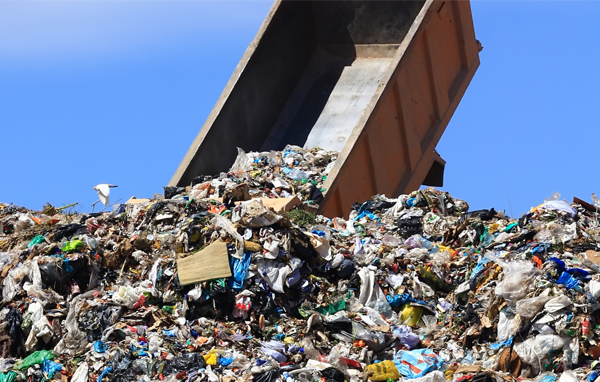In recent times, the need for increased energy demand has heightened a very enticing discussion on an energy technology that involves transforming municipal solid waste to energy. Municipal Solid Waste (MSW) can be used as an energy source in the same way as carbon-containing energy source materials.
Some futurists believe that the world will eventually have a waste-based economy. However, this has thrown repeated questions that mostly go around and getting much of the attention these days―; could MSW be the fuel of the future? The answer is not quite far from nodded heads and lips switched with a faint smile. The idea that MSW would be the ultimate energy of the future goes beyond perception. Because the conception reminds me of an intellectual and philosophical quote, which said: “Pollution is nothing but resources that we are not harvesting”.
- COVID-19 vaccine procurement at advanced stage-FG
- Buhari, King Mohammed discuss Nigeria-Morocco gas pipeline, fertilizer plant
We have been allowing wastes to disperse in our environment because we have been ignorant of their value. But suppose we got onto a planning basis. In that case, the government could trap wastes into pyramidal mountains and get back more money than the prices wastes hoarded to pay us back in pinches. Suppose the science behind this technology can be reduced to practice at an industrial scale and demonstrated to be cost-competitive compared to fossil fuel resources. In that case, it will unquestionably help relieve the increased energy demand in Nigeria, ameliorate the climate change condition caused by other sources of energy production, and bring forth a much-desired energy revolution.
Undoubtedly, apart from the science and technology requirements, government policy and political wherewithal will be the key drivers responsible for accelerating the realisation of the idea. However, for an envisioned MSW to fuel energy revolution, this ground-breaking thought has to be transformed into policy change and action to help solve what currently looks like Nigeria’s insolvable energy problem.
As Nigeria’s urban waste piles up uninterruptedly on streets, adopting waste-to-energy as a solution to lingering waste management problem is far from just a benign alternative means of waste management. Unlike old-fashioned burning, which simply burned waste to get rid of it, waste-to-energy can facilitate the production of energy.
The MSW that has habitually been thrown into the environment can be made to produce value-added utility, which is one solution for two problems― littering the aesthetic pleasure of the environment and production of noxious gases and energy deficit. As a result, clearing mountains of waste by turning it into fuels would solve many problems. The MSW can release a substantial quantity of energy that can be harnessed to drive socio-economic ventures to fruition. For example, an overflowing waste that would otherwise be thrown to dumpsites could produce electricity. It is reported that this doesn’t just make electricity, but can also make money for the people that can venture into the business given the total global waste-to-energy market projection revenues of $45 billion (equivalent to 20 trillion and 250 billion Naira) over the next six years.
In an attempt to grow the movement that favours zero-waste goals, according to projections by the World Bank, the world’s output of MSW could grow from 2.2 billion tons to 3.7 billion over the next 30 years in a business-as-usual scenario. In addition, the worldwide fear of depletion of fossil fuel resources has stimulated governments across the globe to support the cause of turning MSW to energy. This means that waste-to-energy seems self-assured to at least be part of the future picture of energy business.
The ever-growing problem of population explosion and unplanned urbanisation, coupled with freehand consumption styles, particularly in Nigeria, are the driving factors or indicators of social development that gives a first view of how deeply dependent one could be on MSW’s position as the lifeblood of the fuel of the future. By understanding this nexus and taking a closer look at the current security of energy supply and environmental protection marked by fervent partisanship, MSW is anticipated to dominate global energy markets.
It has been reported that the world market for waste to energy is expected to grow at a compound annual growth rate (CAGR) of approximately 6.45 per cent during the forecast period of 2020-2025. This is because of an increasing amount of waste generation and growing concern for its management to meet the need for sustainable urban living and increasing focus on non-fossil fuel sources of energy. Such dispels fear and raises hope in the business dynamics of such energy transition in the foreseeable future. For that reasons, turning MSW to fuel is a result-based energy business leaving no one behind and therefore, no time to waste!
Therefore, the waste to fuel narrative is fast changing the so-called throwaway culture of wastes, as waste is wealth rings so true today. It infers that energy can either be derived or captured from the wastes around us in the environment and can eventually return to the environment as a wealth harmlessly. Consequently, energy and environment have always been and will ever be inextricably linked.
Thus, it is time to think technically not to allow the popularity of the idea to be sapped by short-term goals or short-sighted political agendas of the country’s energy policy. More generally, because of rising demand for energy and continuous growth of MSW, waste to fuel sounds more reliable than solar, wind or even hydro energy.
Haruna Adamu, is an Environmental Physical Chemist, wrote from the Department of Environmental Management Technology, ATBU, Bauchi

 Join Daily Trust WhatsApp Community For Quick Access To News and Happenings Around You.
Join Daily Trust WhatsApp Community For Quick Access To News and Happenings Around You.

